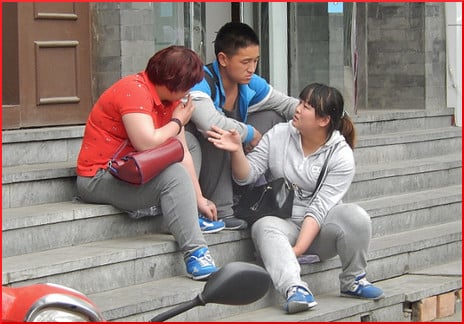A baby is helpless, a child is powerless, yet somehow these little creatures become obese. Are they doing it to themselves? No. The earlier obesity sets in, the harder it is to reverse, so fat toddlers become fat grade school kids, and then fat middle school students, and so on down the line.
By the time they are old enough to realize that they can take control of their own health, they don’t even know what health feels like. They are used to being unhealthy. What feels normal is what has always been. Fatigue and shortness of breath seem normal, and so do clothes that don’t fit right and all the thousand other annoyances and inconveniences of obesity.
The Inner Misunderstanding
The body gets used to doing things in habitual ways – like metabolizing nutrients. It grows a certain number of fat cells, and seems to resent being asked to shrink them. Genetic traits that come from parents may exacerbate the tendency to become obese.
Do Bad Genes Cause Big Jeans?
Like the body, the mind receives elemental building blocks from parents and other caregivers. We could fancifully call them mental genes, because of how faithfully they often survive the transfer from one generation to the next. Just like hair color, ways of thinking about food and body image are passed from parent to child.
Outside the home, another layer of socialization piles on as ideas of what is right and proper are transferred from neighbor to neighbor. That is what makes up a culture. Ethnicity is a combination of genetics and culture, and some ethnicities and cultures are known to be far more tolerant of full figures.
In 2012, a study showed that around two-thirds of low-income mothers believed their toddlers were too small – a belief not supported by BMI measurements and other statistical tools wielded by the scientists. Another study, commissioned by the Centers for Disease Control, found that boys are more likely than girls to think their weight is within normal limits when it’s not; and also:
Mexican American kids were more likely to suffer from “weight status misperception” compared with African Americans, who in turn were more likely to have it than white kids.
Heather Neal is a dietician who seemingly has done everything right, as far back as before her son was even conceived. Still, she has to face the fact that the boy is obese. In addition to coping with this reality, she is even more shocked by the opinions of others who do not see this as a problem. She writes,
I hear more people tell me it’s “normal” for him to be overweight because he’s “only two.” They’ll tell me babies and toddlers are supposed to be fat and chubby and roly-poly; that fat kids don’t grow into fat adults. While sometimes that’s the natural course for kids, overall, that’s just not true.
Your responses and feedback are welcome!
Source: “Overweight and obese kids are in denial about their weight, CDC says” LATimes.com, July 24, 2014
Source: “7 Things I’ve Learned from Having an Overweight Toddler” Babble.com, October 2014
Image by Michael Coghlan


 FAQs and Media Requests:
FAQs and Media Requests: 











